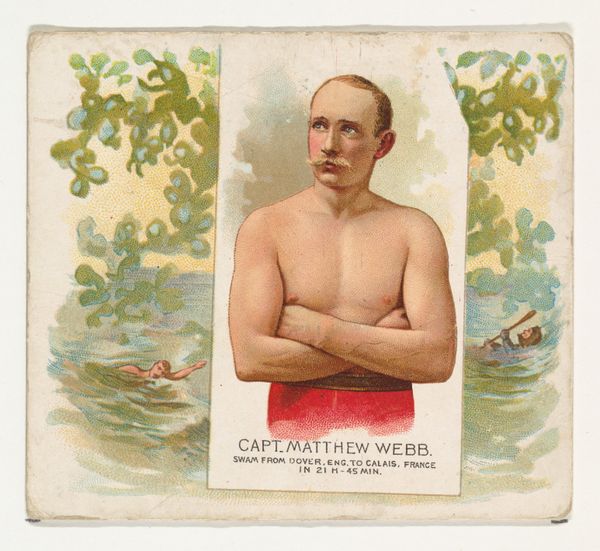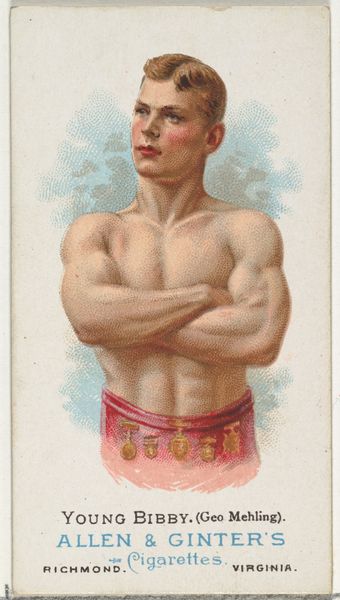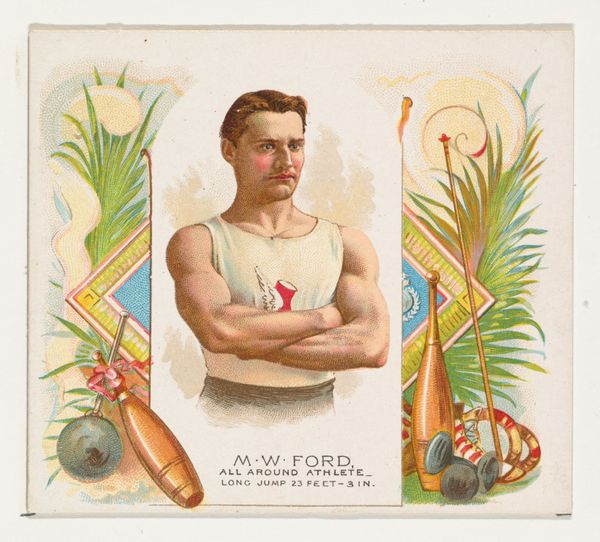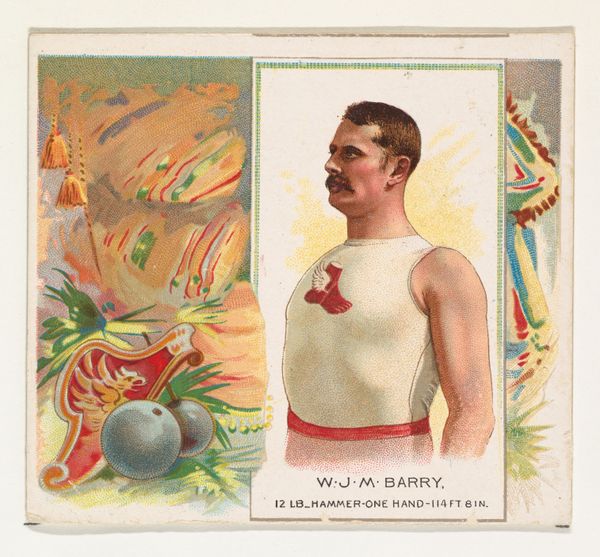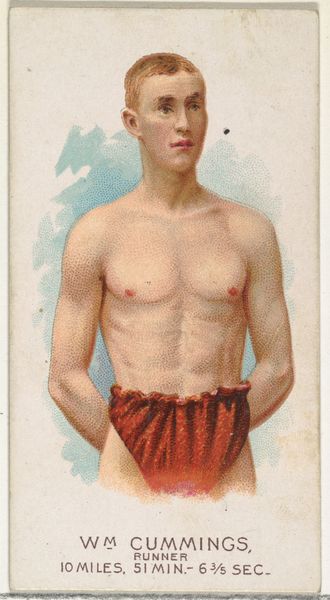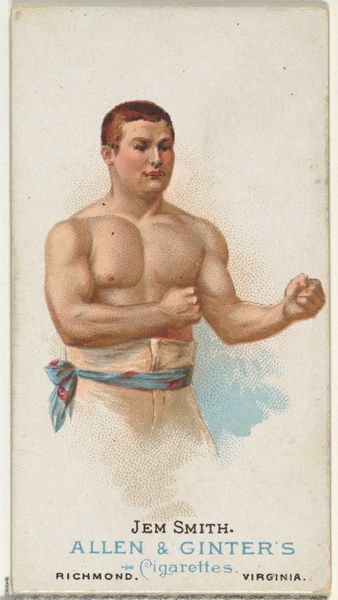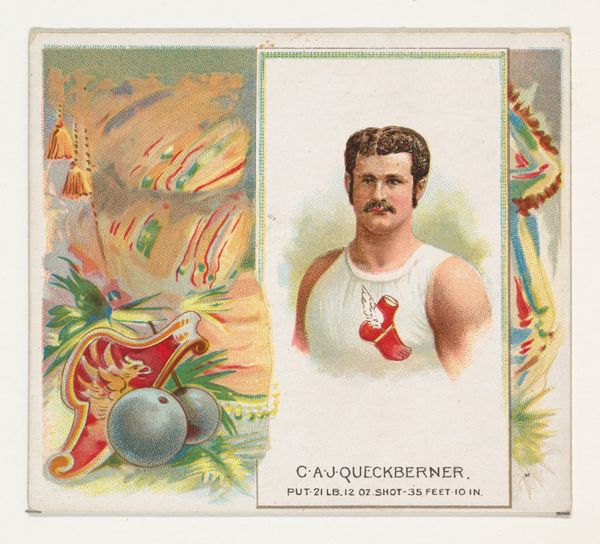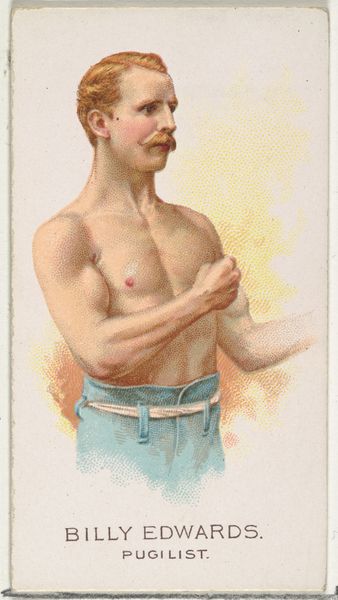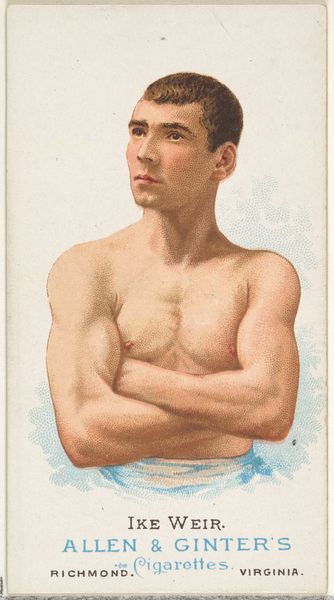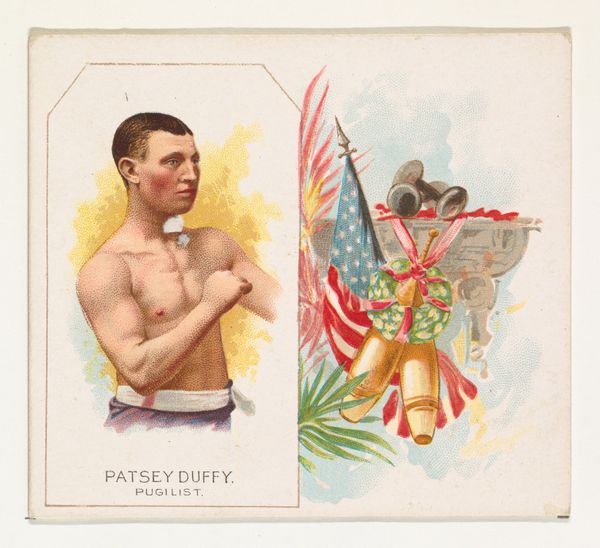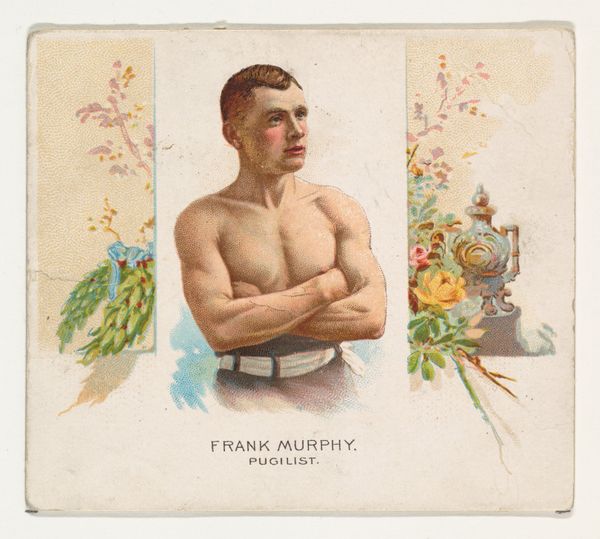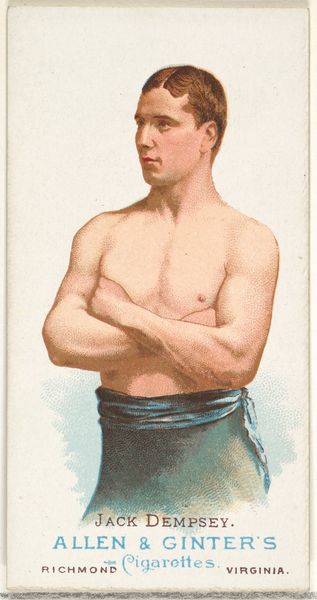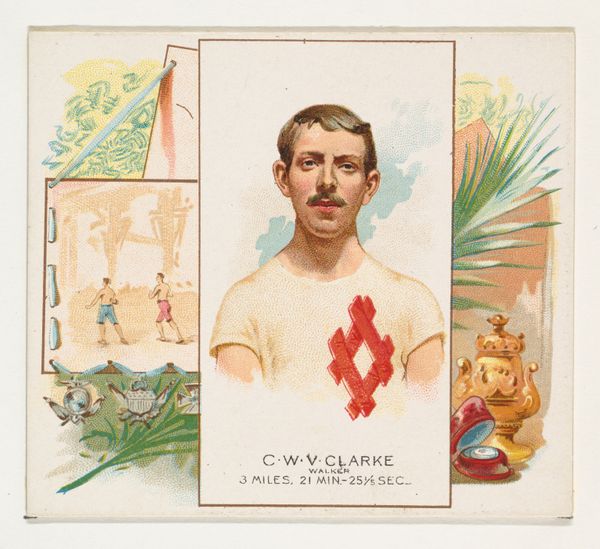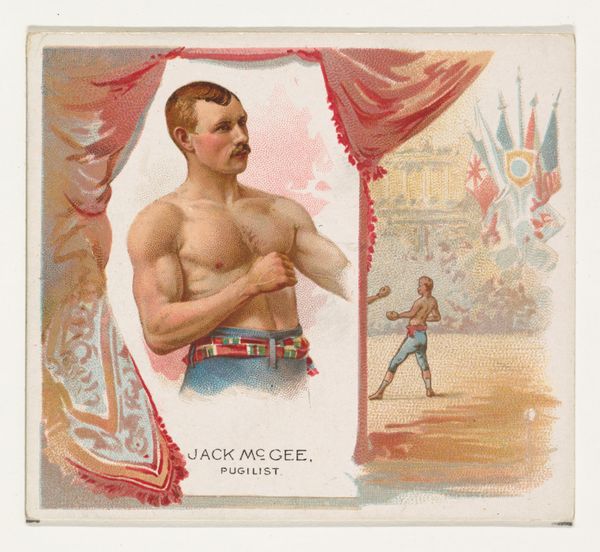
William Cummings, Runner, from World's Champions, Second Series (N43) for Allen & Ginter Cigarettes 1888
0:00
0:00
drawing, print, watercolor
#
portrait
#
drawing
# print
#
watercolor
#
men
#
watercolour illustration
#
genre-painting
#
athlete
#
academic-art
Dimensions: Sheet: 2 15/16 x 3 1/4 in. (7.4 x 8.3 cm)
Copyright: Public Domain
Editor: Here we have "William Cummings, Runner" from 1888, created by Allen & Ginter as a cigarette card. It combines drawing, watercolor and print. The composition is certainly...unconventional! What do you make of this portrait, with all its little decorative elements? Curator: It's fascinating how seemingly disparate elements come together to form a potent cultural symbol. Note the central image, Cummings, framed almost reverentially. The garland border mimics those seen in classical portraits. Editor: You mean like an icon, or something sacred? Curator: Precisely. While appearing modern, it taps into very old traditions of celebrating heroism through idealized depictions. Look how the racing scene becomes almost mythical in the background, shrouded in that hazy blue. Editor: So the artist is almost inventing a mythology for sport? Curator: Exactly. By using the symbolic language of established portraiture, the producers elevated athletic achievement to a realm of cultural significance. This card isn’t just selling cigarettes; it's selling the *idea* of athleticism as a value, a modern form of glory, which, in turn, would affect the psychology of the consumers. Even the flowers subtly reinforce themes of triumph and celebration, echoing customs associated with victory throughout history. Do you agree? Editor: That's interesting. I never would have considered how the visual language of these cards contributes to creating almost like a national memory. It definitely adds depth to what I saw as a simple portrait! Curator: And that layered approach, recognizing continuities of meaning, helps us appreciate these works on a more insightful, historically rich level.
Comments
No comments
Be the first to comment and join the conversation on the ultimate creative platform.
